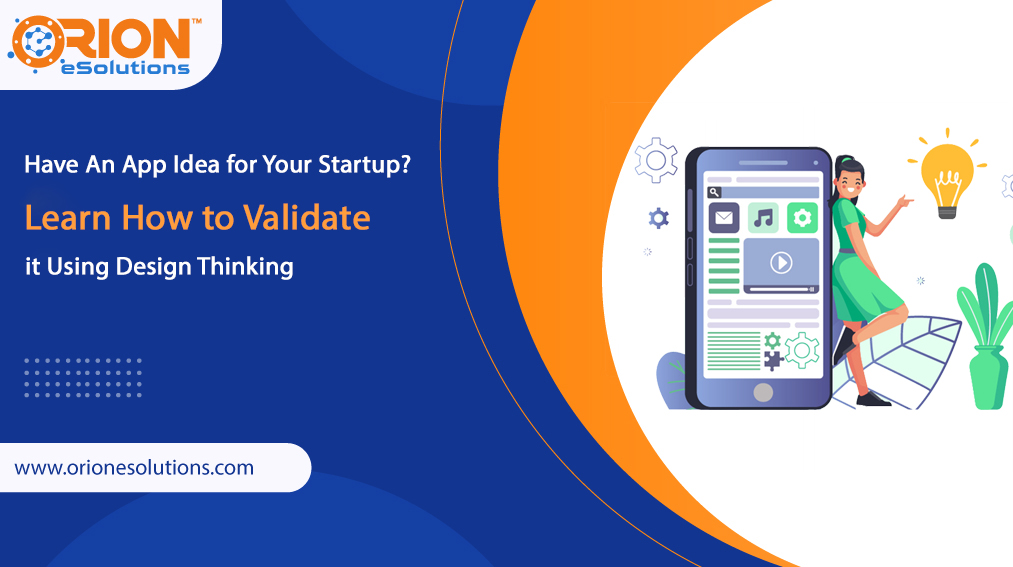A mobile app is one of the most important online fronts for your startup. Websites and microsites work as well. But none as well as an app. The numbers sing a similar tune as well:
- 49% of the global population opens an app 11 times a day, according to Buildfire. Whereas a user opens less than 10 websites per day.
- According to Serpwatch, mobile apps are expected to generate a revenue of $935 Billion by 2023.
Now let us marry these numbers to the benefits of mobile apps.
Why a Mobile App is Necessary for Startups in 2022
Apps can be personalized according to each user. Be it the theme, structuring or the presentation of information architecture, apps offer a flexible platform to interact with the users. True, websites can offer this as well, but considering the engagement and opening rates, apps are deemed better.
It is easier to send notifications through apps. Push notifications can be enabled through websites as well. However, the process is tedious insofar as a user is concerned. Apps can render the process seamless and feels less intrusive.
- The click through rate of push notifications is 2.75%, and as such, it is a sine qua non of businesses today.
- The global expenditure of consumers through mobile apps in terms of purchase and subscriptions stood at $29.3 Billion in 2020.
- The average time spent on an app by a user is 18.78 minutes according to Statista while the average user is expected to spend just 8 minutes on a website if the user landed on the website without a very specific intention.
These narratives sculpt reverence for apps in the marketplace today. Any business would want to jump at the chance of getting an app to experience exponential growth. However, this is far from the reality.
An app needs to be foundationed on a realistic idea backed by research. It needs to solve a problem. And it needs to be solved in an efficient manner. The solution has to be communicated with the user seamlessly. And above all, the solution should drive revenue for your business.
Kinvey performed “The Survey of CIOs” and came up with some interesting numbers regarding app development. The average cost for developing an app is $270,000 – $500,000. Though this can vary according to the size of the team you hire, the functionalities expected in the app, and
the turnaround timeline, the figure is still large enough to cause multiple concerns.
This is why app validation is important.
Here, we will discuss how to validate an app idea for your business in 5 simple yet comprehensive steps. As a rule of thumb, Orion eSolutions take a Design Thinking approach to every problem we solve. And this is no exception.
5 Steps to Validate Your App Through Design Thinking
Before diving into this specific concern, let us take a look at what Design Thinking entails.
- Empathize
Empathizing allows one to identify the exact need of the hour. It can help you gain insights into what are the exact requirements that a solution has to address.
- Define
A problem well stated is a problem half solved. This is why it is important to formulate an airtight definition of the challenge at hand and then proceed.
- Ideate
One of the most interesting stages of the Design Thinking process. Ideating is brainstorming. It brings together the various departments to curate the best possible solution.
- Prototype
This is the penultimate stage of the process. Prototyping helps visualize the solution. It can help you understand how the solution will look like, to the users. This further helps in perfecting the nuances.
- Test
The process continues. Once the solution has been generated, it is now time for continuously optimizing, testing, and augmenting it. Market dynamics change. Peoples’ expectations vary. And tech-enabled possibilities grow within the app development spectrum. Hence, testing and
optimizing is regarded as one of the most important undertakings in this process.
With the above points clarified, let us now understand how this can help in app idea validation.
-
Research. Find the Audience. Identify the Problem
The first step to app idea validation is “empathizing” with the needs and necessities. By performing a thorough market research, you can see where your competition is headed. You can further figure out the gaps in the solutions that they are providing. And then understand what needs to be done in order to solve this.
You should also be aware of the disposable income of your target audience and the exact nuances they need solved.
Now comes the “defining” stage.
-
Create Personas. Define Journeys
By defining the problem, you can create a proto persona of your target audience. Their demographics, disposable income etc need to be addressed. By creating a user journey, you will be able to understand the bottlenecks and delight-factors of your app.
-
Set Goals
The next is to set validation goals. These goals could include app pitch success, number of beta-downloads, or even a successful sale of the concept of the product.
By setting goals that are in sync to your long term visions, you can be sure that you are on the right track. This is the ideation stage. If the goals are not being met, you can always track back the progress and see where the friction is.
-
The Actual Validation
Test the functionalities by creating a prototype. Introduce the app on investor platforms and ask for feedback. Promote the MVP ideas online and offline in the most comprehensive manner possible.
With the feedback that will start pouring in, develop or reframe the USP of your app. Further, work in accordance with the feedback. Make sure that your app is congruent to this new intelligence that you get from the users and investors.
-
Continuous Improvement
Creating the app and getting it published is just the beginning. Understand how the customers are interacting with your app. See where they are facing friction. Now that the app is relatively widely used,this information can help you with some contextual clarity.
Through these 5 carefully crafted steps, you can be sure that your app serves the purpose, drives the revenue, and creates the impact.
Summing Up
With Orion eSolutions as your mobile app development partner, be ensured that these crucial parameters will be taken care of. Our digital wizards have deep expertise in creating mobile apps that simply work. Get in touch today to see how well we can turn your ideas into implementations that delight your customer.
FAQs:
Question 1: What are some good tools for app validation?
Answer: Perfecto, Appium, Tech Project, Ranorex.
Question 2: What does app development costs depend upon?
Answer: The major factors are teamsize, the functionalities required as well as the problems the app plans to solve









